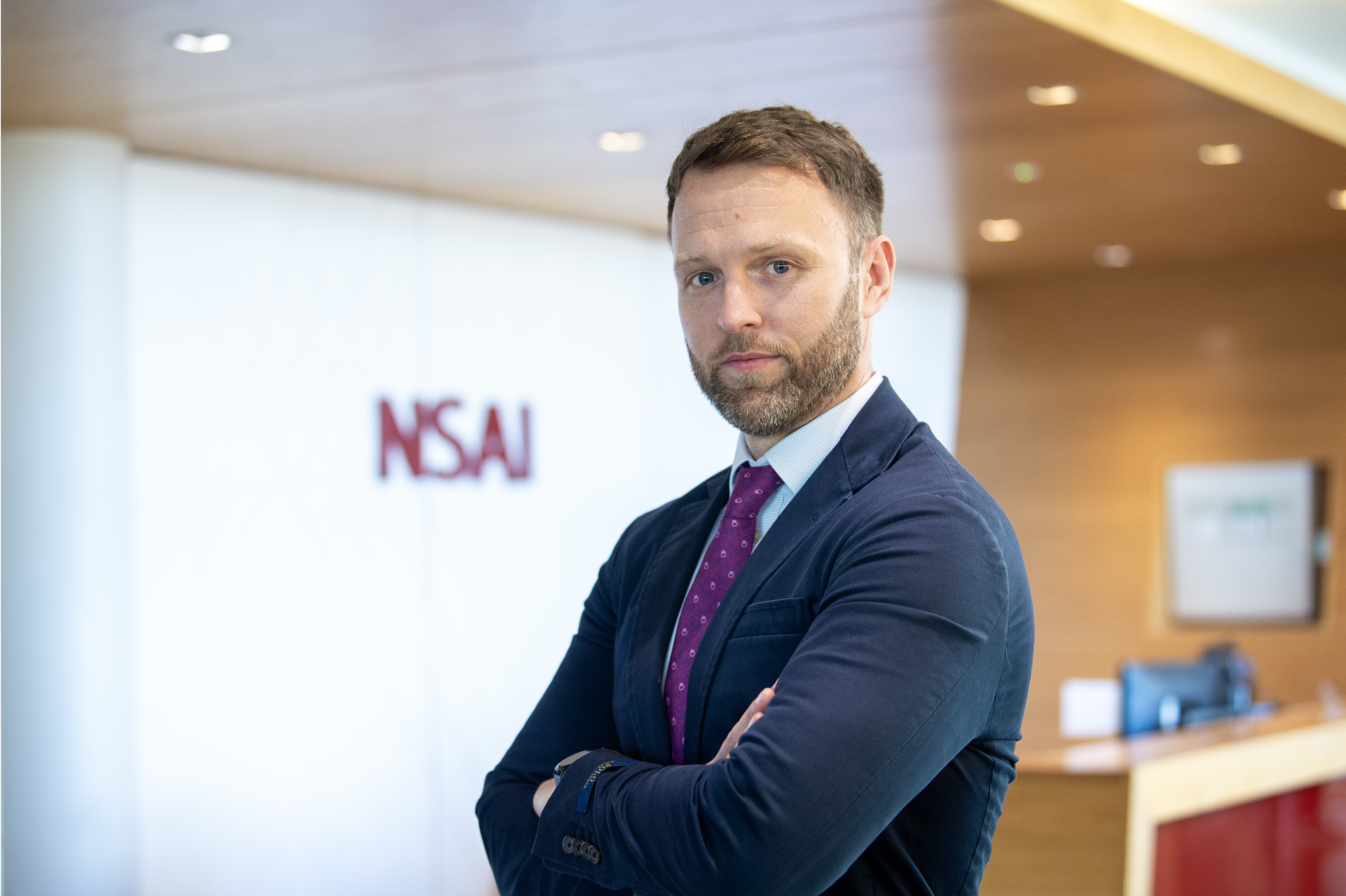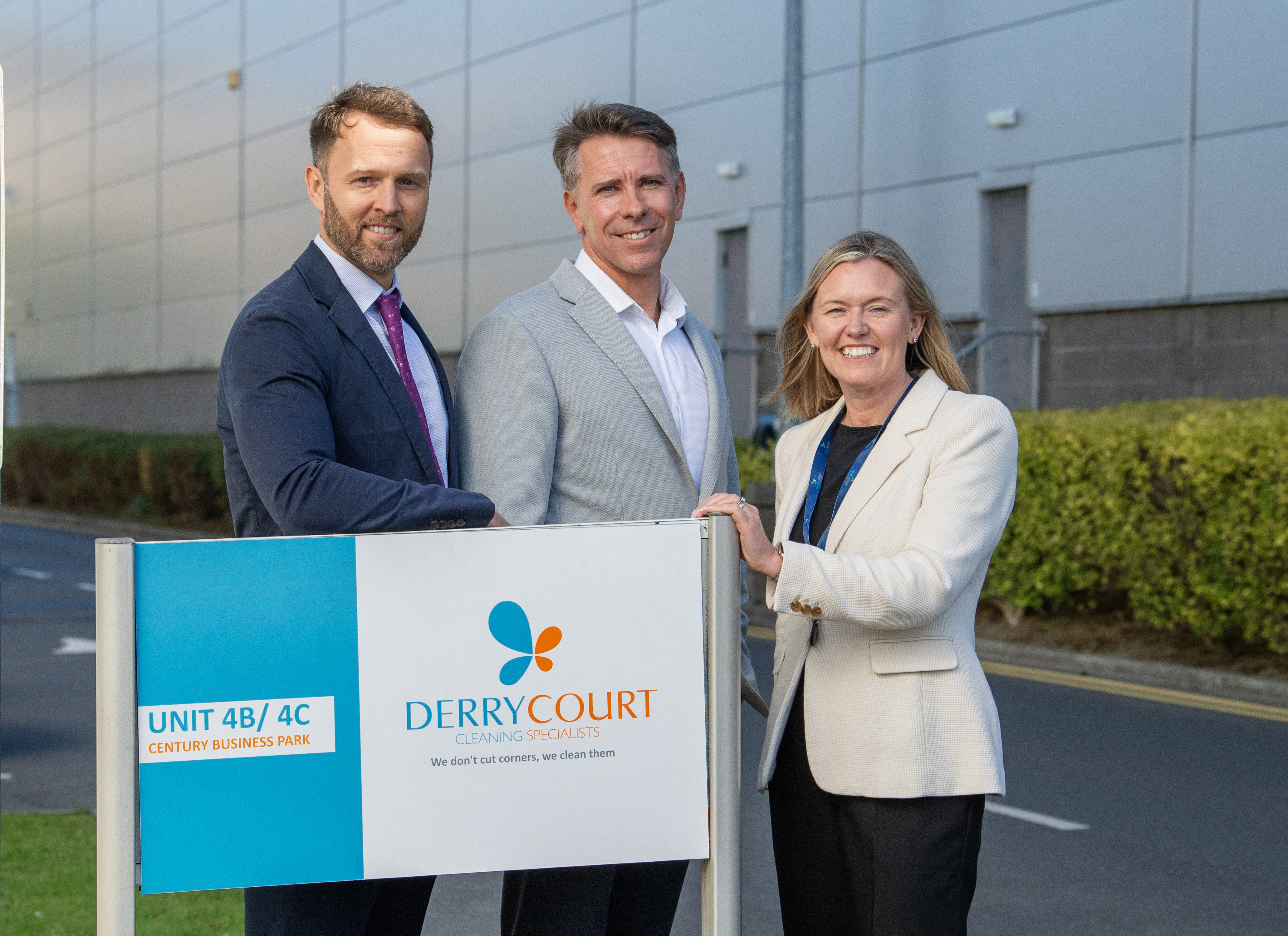- About >
- Thought Leadership >
- Driving business growth through sustainability: NSAI's strategic approach to environmental stewardship
By Stewart Hickey, Head of Business Excellence, NSAI
With the Corporate Sustainability Reporting Directive (CSRD) on the horizon, businesses across the European Union (EU) are reshaping their sustainability practices.
For the first time, companies will have to disclose details of their sustainability impact, risks and management approaches. While the directive mainly applies to large companies and listed entities, it's set to cause a ripple effect throughout the business landscape. It's important for businesses of all sizes to be ready.
The National Standards Authority of Ireland (NSAI) is helping businesses prepare by providing international sustainability standards, certification and verification services. This enables them to reduce their environmental impact and drive economic growth.
Beyond regulatory compliance, companies benefit from maintaining the highest industry standards. Improved energy efficiency, resource management and verified emissions reporting lead to significant cost savings. The sustainability work is a valuable way to build brand reputation and customer loyalty, which can have a positive knock-on effect. Showing environmental leadership also helps attract and retain talent, creating a virtuous cycle of innovation and economic progress.
NSAI remains at the forefront, supporting them as they take meaningful actions.
Stewart Hickey Head of Business Excellence
 Maintaining the highest industry standards
Maintaining the highest industry standards
International standards are helping organisations evolve and improve their sustainability practices. They provide a structure for managing environmental impact, energy use and emissions. Three in particular provide a benchmark for businesses of all sizes to ensure the highest standards in environmental stewardship.
Environmental Management System for environmental management [ISO 14001:2015]
Through ISO 14001:2015 certification, companies prove their commitment to minimising their environmental impact. This is done through robust processes and controls.
ISO 14001 requires organisations to establish environmental policies, set objectives and targets, implement operational controls for significant environmental impact and monitor their performance.
This holistic approach helps businesses identify and control their significant environmental impacts, from waste and emissions to resource consumption and biodiversity protection.
Energy Management System for energy management [I.S. EN ISO 50001:2018/A1:2024]
While ISO 14001 focuses on broader environmental systems, ISO 50001 zeros in on optimising energy use and efficiency and consequent minimisation of energy related carbon footprint.
This standard helps companies develop an efficient energy management system, reduce costs and lower greenhouse gas emissions.
Many organisations pursue ISO 14001 and ISO 50001 in tandem, creating an integrated management system, with NSAI providing independent third-party certification.
Organisation Level Quantification and Reporting of Greenhouse Gas Emissions and Removals [I.S. EN ISO 14064-1:2019]
For organisations who require a means to demonstrate conformity with environmental reporting requirements, NSAI's ISO 14064-1 verification services provide a robust method to independently verify their greenhouse gas emissions and removals.
ISO 14064 enables organisations to develop credible carbon accounting practices, supporting transparent climate action strategies and helping companies demonstrate their commitment to environmental sustainability.
These standards, whether used in isolation or together, provide structure. They're a critical tool for organisations to show their commitment to sustainability, reduce operational risks and create long-term value for stakeholders; this helps businesses:
- stay ahead of regulatory obligations,
- demonstrate authentic environmental performance through precise carbon accounting,
- position themselves as leaders in the green economy,
- access new national and international market opportunities.
Navigating an evolving regulatory landscape
While the CSRD is set to shake the foundations of how businesses manage their environmental impact, it's not the only major change on the horizon. The recast of the Energy Efficiency Directive (EED) is set to be transported into Irish law by October 11, 2025. This includes new requirements for energy management systems (EnMS) for larger energy-consuming companies.
This means companies that use more than 8 megaloules (MJ) of energy each year will be required to have an EnMS in place by October 11, 2027. Companies that use more than 10MJ of energy annually will also be required to have an energy audit or certification to ISO 50001/14001 in place by that date.
The EU's Green Claims Directive aims to set standards criteria for environmental marketing claims, ensuring the authenticity of sustainability communications. NSAI is Ireland's designated competent body for voluntary EU Ecolabel, the office environmental label of the European Union. This has gained significant traction as a way for organisations to authenticate environmental credentials. By meeting stringent lifecycle criteria covering resource use and waste, companies can differentiate their offerings. This helps them appeals to environmentally conscious consumers and open up new procurement opportunities, driving business growth and innovation.
 Businesses across the EU are preparing to face these new and evolving regulatory demands and challenges. By investing in comprehensive environmental management systems and verifying sustainability efforts through standards and EU Ecolabels, companies can mitigate ecological impacts. This helps them to futureproof operations and seize new market opportunities.
Businesses across the EU are preparing to face these new and evolving regulatory demands and challenges. By investing in comprehensive environmental management systems and verifying sustainability efforts through standards and EU Ecolabels, companies can mitigate ecological impacts. This helps them to futureproof operations and seize new market opportunities.
NSAI remains at the forefront, supporting them as they take meaningful actions. As the climate crisis intensifies, the role of standards in driving growth and innovation becomes increasingly critical. NSAI enables Irish businesses to not just adapt, but to lead.
